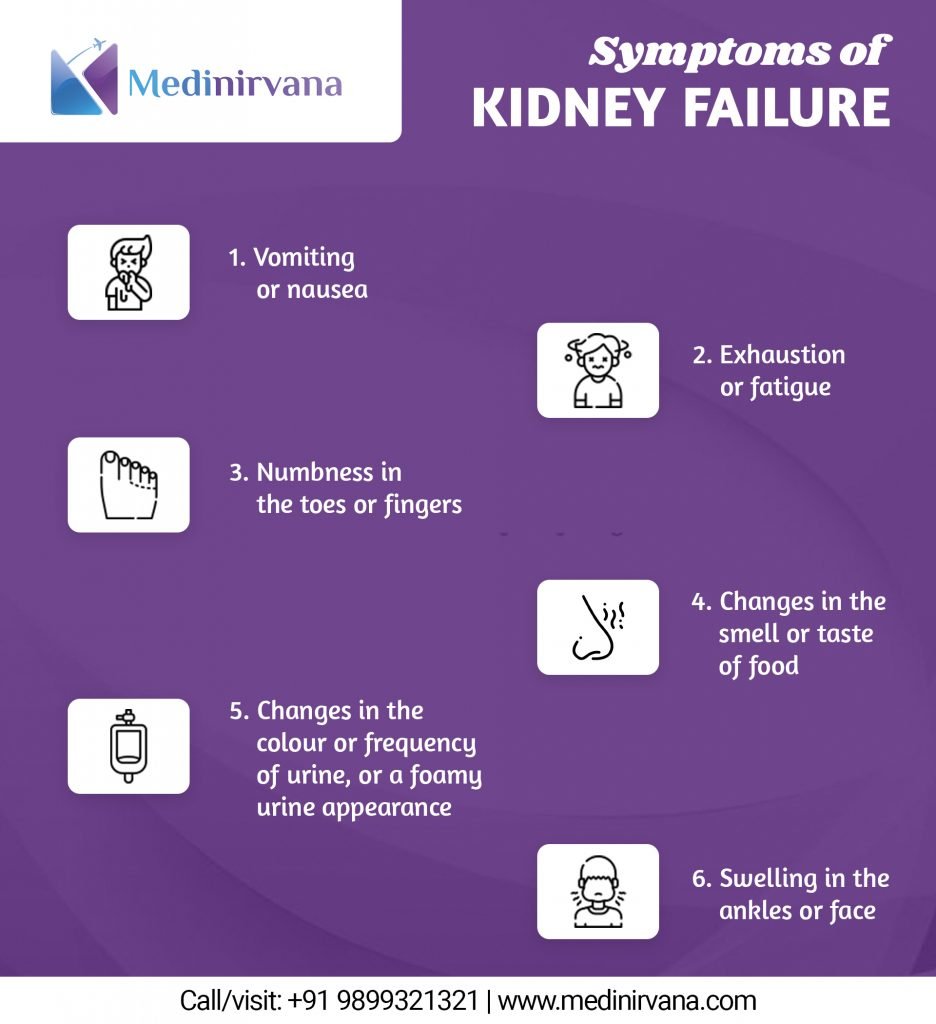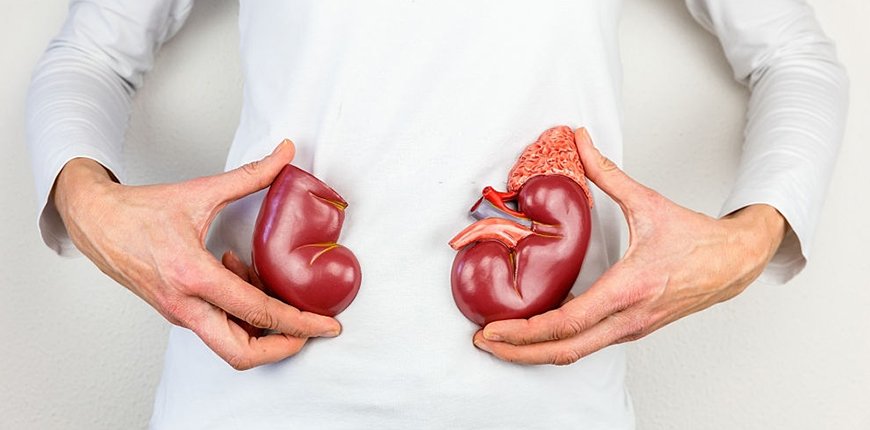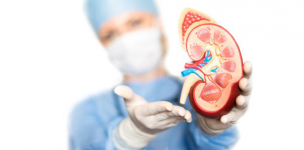Have you been looking for a kidney match for a long time but asked to wait for years? Want to opt for a kidney transplant or nephrectomy but struggling financially? If your answers are a yes, it is time for you to avail of kidney transplant in India.
Table Of Contents
Feel free to skip ahead if one topic catches your eye:
- Reasons for Kidney Removal
- When Kidney Transplants are needed?
- Life of a Person with a single kidney
- How to Protect a Single Kidney?
- Kidney Removal Transplant in India
Takeaway
- Reasons for Kidney Removal
The most common reason for kidney removal is to remove a tumour from the patient’s kidney. These tumours are generally malignant (cancerous) but they may also be benign (non-cancerous). A nephrectomy may also be performed due to other kidney diseases.
A nephrectomy is performed by a urologic surgeon for removing abnormal growth of tissue in a kidney or a cancerous tumour. The decision of the urologic surgeon depends on:
- Whether the kidney has more than one tumour
- Whether the tumour is confined only to the kidney
- The performance of other kidney functions
- Whether nearby tissue is affected by the cancer
- The extent and severity of the cancer
- Overall kidney function
- The performance of the other kidney
The final decision of the urologic surgeon is based on the results of patient’s imaging tests that may include:
- Magnetic resonance imaging (MRI) in which a magnetic field and radio waves are used for producing 3D images or cross-sectional views.
- Computerised tomography (CT), which is a specialised X-ray technology producing images of thin cross-sectional views of soft tissues.
- Ultrasound, sound waves are used to produce an image of soft tissues.
The different types of kidney removal surgeries are:
- Simple nephrectomy: During this procedure, the surgeon will remove the entire kidney by making an incision up to 12-inch long in the side. The blood vessels of the kidney will be cut away by the surgeon along with its connections to the patient’s bladder. Thereafter, a rib may also be removed by the surgeon for accessing the kidney.
- Partial nephrectomy: During this surgical procedure, the surgeon removes only a part of the patient’s kidney. The procedure is quite similar to that of simple nephrectomy and the only difference is that the surgeon makes a smaller incision in partial nephrectomy when compared to simple nephrectomy.
- Laparoscopic surgery: Also known as a keyhole surgery, Laparoscopic surgery can be used for either a partial or simple nephrectomy. During this surgical procedure, the surgeon will make many small incisions instead of a single and long incision in the abdomen. Thereafter, a camera and some small instruments will be inserted into the patient’s body through the incisions so that the surgeon can view inside the body and then proceed with the removal of the kidney. This procedure is generally less painful when compared to an open surgery and the associated recovery time is low as well.
- When Kidney Transplants are needed?
A nephrectomy, a kidney removal surgery, may be recommended for removing a part of or all of the kidney. It is done when:
- The kidney is not properly functioning
- The patient wants to donate the kidney
- The kidney is damaged
- When the patient has kidney cancer
- Severe high blood pressure because of renal artery stenosis.
- Severe trauma like an automobile accident where the kidney has been damaged beyond repair.
- A transplanted kidney had been rejected by the body of the recipient.
A nephrectomy is generally performed for treating kidney cancer but it may be recommended if one of the patient’s kidneys has been scarred or severely damaged by other causes and if kidney functions have been impaired. The possible causes include:
- Congenital defects
- Kidney disease like hydronephrosis
- Severe traumatic kidney injuries
- Damage from kidney stones
- Damage from infection
If a patient is experiencing all or any of the above symptoms, immediate medical intervention is recommended.
Damaged Kidney
When the patient’s kidney(s) are swollen or damaged, the surgeon may have to partially or completely remove the kidney that is not functioning properly. The primary reasons for swollen kidney removal include scarring or damage caused due to infection, injury, or disease. Kidney cancer (renal cancer) is also a reason for kidney removal.

Donating a kidney
At times, people may donate a healthy kidney to a known individual or someone in dire need of a healthy kidney. The surgeon performs surgeries to take out the healthy kidney from the donor and transfer it into the recipient’s body.
- Life of a Person with a single kidney
A majority of people lead a healthy and normal life with a single kidney. However, it is extremely important for people with a single kidney to stay as healthy and fit as possible and to safeguard the single kidney they have.
- Patients with a single kidney should get their kidney functions checked at least once a year. For this, the doctor will recommend a simple blood test and a urine test.
- Patients with a single kidney should get their blood pressure checked at frequent intervals.
- Patients with a single kidney should avoid contact sports such as hockey, soccer, martial arts, football, boxing, or wrestling. They should also abstain from high-risk activities such as motorcycle riding, rock climbing, water skiing, jet skiing, horseback riding, skydiving, bungee jumping, and motorsports.
- Exercising regularly, getting regular health checkups, staying hydrated, maintaining a healthy weight, consuming a nutritious diet, and managing a healthy and active lifestyle are important to keep the kidney healthy.
- Patients with a single kidney should avoid nicotine and alcohol. They should try meditation and other techniques to keep low on stress, anxiety, and depression.
- Glomerular filtration rate (GFR) test and a test for measuring the protein count in the urine should be taken every year for evaluating the kidney function.
- How to Protect a Single Kidney?
The following tips and precautions are helpful for protecting a single kidney:
- Regular exercise is important to manage weight and cut down the risk of chronic kidney diseases. Intense workouts, strength training, and cardio sessions are good to regulate blood pressure and boost the health of your heart that is critical to prevent kidney damage. You can engage in activities such as cycling, walking, running, or dancing.
- People who have high blood sugar levels or diabetes should regularly implement ways to control their blood sugar.
- High blood pressure may result in kidney damage and you should make every possible effort to keep the blood pressure reading to 120/80 with dietary and lifestyle changes. If your blood pressure reading is above 140/90, you can have high blood pressure and must seek immediate medical intervention.
- People who are obese or overweight are at an increased risk for many health complications (heart or kidney diseases, diabetes, etc.) that may have a determintal effect on the kidneys. It is best to have a healthy diet that is low in processed meats and sodium and instead prefer fresh and low-sodium ingredients such as fish, whole grains, cauliflower, blueberries, and more.
- Patients with a single kidney should consume about 10-14 glasses of water every day throughout the day to clear toxins and sodium from the kidney.
- It is important to stay away from nicotine and smoking as they can cause severe damage to the blood vessels of the body.
- Over-the-counter (OTC) pain medication may cause kidney damage. You should remember that nonsteroidal anti-inflammatory drugs (NSAIDs) such as Naproxen and ibuprofen can result in kidney damage if they are taken on a regular basis for headaches, chronic pain, or arthritis.
Regular kidney function tests are beneficial for:
- People who are over 60 years.
- People who have cardiovascular disease or a family history of cardiovascular diseases.
- People who are obese or overweight.
- People with a family history of high blood pressure.
- People who are of the view that they may have kidney damage.
- Kidney Removal Transplant in India
A majority of patients living in western and developed countries of the world have to stay on the waiting list for an average 1-3 years. Moreover, the cost of kidney transplant in these countries is extremely exorbitant. If this is not all, they have to stay prepared at all times for the kidney transplant and patients have to stay on dialysis till they don’t find a matching donor. Now comes the good news – Medinervana, the most reputed and trusted medical tourism organisation in India, can help you get rid of all these constraints. It helps you with everything before, during, and after the kidney transplantation in India that is considered as one of the best medical tourism destinations in the world.
Indian hospitals are equipped with state-of-the-art infrastructure and have teams of experienced, qualified, and innovative surgeons, urologists, doctors, nurses, and other medical professionals. There are no language barriers and patients can expect affordable and reasonable kidney transplantation cost (which is usually one-fifth, one-tenth, or even one-thirty of the cost that would have been incurred if the treatment was performed in a developed or western country). You don’t have to wait for months and years to get a kidney match and you can plan your visit to India as per your convenience and preferences.
Takeaway
A kidney transplant is a complex procedure that is best handled by medical experts. However, it may be a costly procedure and cost a fortune. Therefore, it is important for you to choose India, one of the most reputed medical tourism destinations in the world that is home to some of the world’s most reputed surgeons and medical professionals who perform complex medical procedures in India’s top hospitals. These hospitals are equipped with the latest, advanced, and state-of-the-art infrastructure and equipment.
If you or someone close to you needs assistance with kidney transplantation, please feel free to contact MediNirvana that will help you with everything including the best kidney transplant hospital in India, medical visa, accommodation, etc.







Leave a Reply